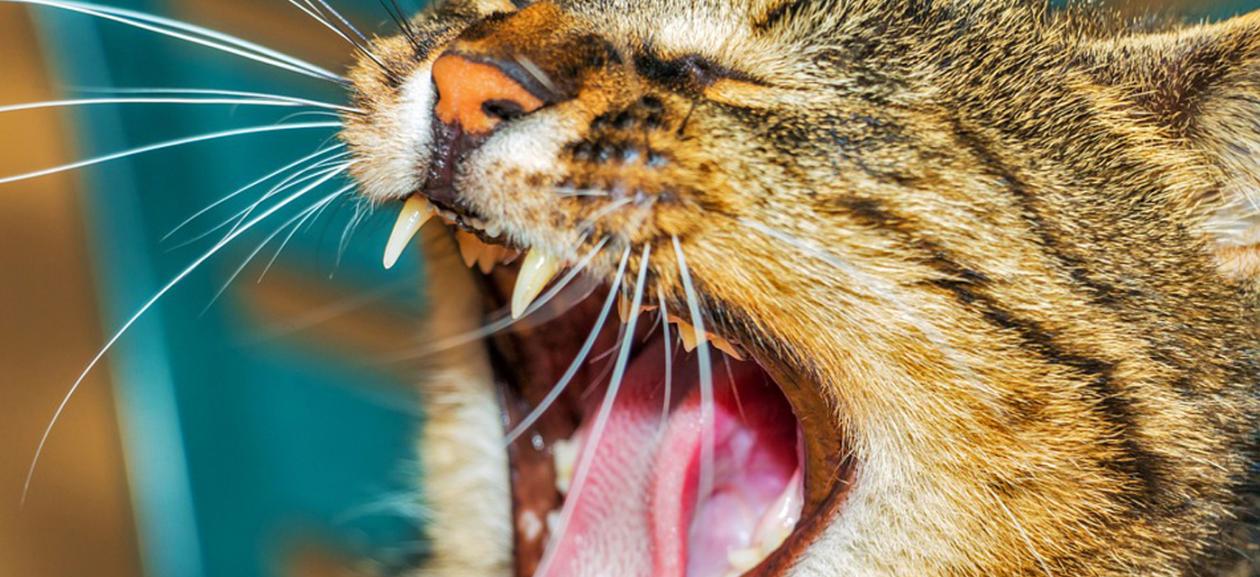
Cat vomit: What’s normal and what’s not?
If you’re a cat owner, it’s possible you’ve seen your cat throw up a few times. An isolated incident or two is usually no great cause for alarm. Occasional vomiting is not severe, but also not necessarily normal. If your cat continues to eat regularly with normal bowel movements, it’s likely nothing serious. But it could signal a need for a change in diet, or a possible food allergy. Switching to an alternative protein source like fish or duck could cure the ailment, or avoiding cat treats with ingredients you can’t pronounce.
If your cat is a “gobbler,” lapping up as much food as possible in the shortest amount of time, it may cause vomiting. This can occur when there are other cats around and your feline feels the need to compete to get food into its belly. Consider feeding your cats separately at different locations in the house to remedy this situation.
Hairballs are a common cause of vomiting – “hacking” up a hairball seems to be normal. But it’s not a pleasant experience for your cat and can be eased by brushing your cat regularly to remove excess hair and shedding. Occasional vomiting may also be caused by an overactive thyroid which is treatable.
How do you know when vomiting could potentially signal something more serious? DoveLewis Veterinarian and Critical Care Specialist Dr. Ladan Mohammad-Zadeh cautions that hacking could indicate other potentially health-hazardous conditions. “Apparent hacking without production of a hairball or vomit could actually be coughing suggestive of asthma or some other respiratory issue. This warrants evaluation by a veterinarian,” she says.
Another indication of a more serious condition is determined by frequency. If your cat seems to vomit more than just a few times, it could signal the need for a veterinary visit, stat. Look for these additional symptoms that could indicate something more serious:
• Diarrhea
• Dehydration
• Lethargy
• Blood in vomit
• Weight loss
• Change in appetite and water intake
If your cat is hacking or vomiting frequently, or if you notice any of the above-mentioned symptoms, please call your local veterinarian for an exam, or bring your feline to emergency veterinary clinic in severe cases.
Recent Posts
Holiday Hazards for Your Pet
Deck the halls with boughs of holly … but be sure it’s out of reach of your furry friends! It’s easy to get swept up in the festivities of the season, but don’t forget that added fun means added risks for your pets.
Why Chocolate Is So Risky for Pets
Milk or dark, candy or cake – chocolate may be one of our favorite sweet treats, but it’s definitely not meant to be consumed by our pets.



